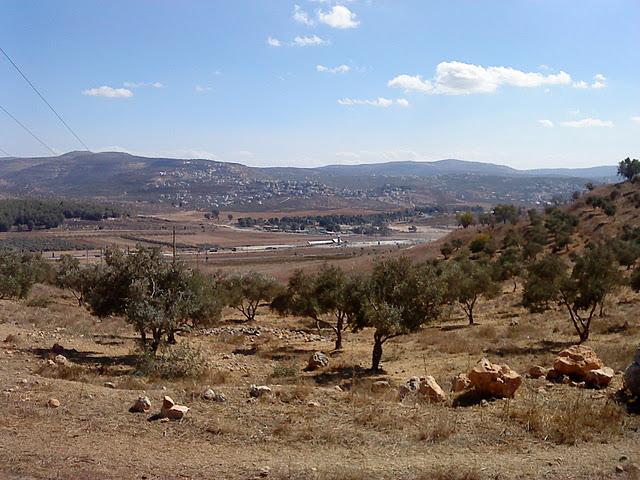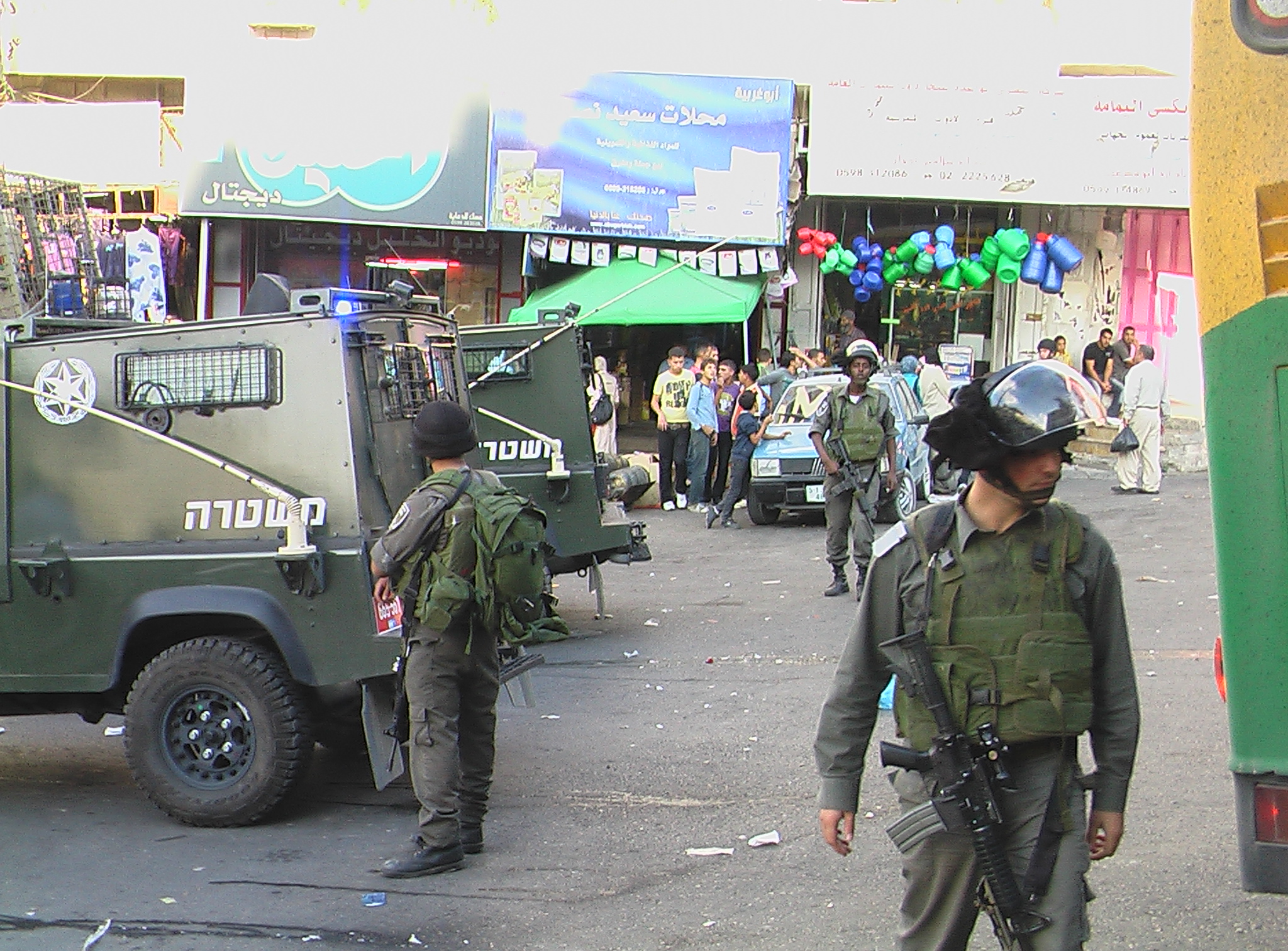Month: October 2011
-
While village attended funeral, Zionists stole
18 October 2011 | International Solidarity Movement, West Bank On Tuesday, a family in Kufr Qalil cancelled all olive harvest because of the death of a family member. While the people in the household were at the cemetery to attend the funeral, settlers from the adjacent Berakha settlement took the opportunity to visit the household’s…
-
The colonial parade of Hebron
18 October 2011 | Free Paly A crowded Palestinian marketplace, mid-afternoon, the sun is slowly descending, and a cool breeze blows plastic bags past the feet of a jumbled crowd of young men, small boys, women in hijab with their daughters, and old men. They have gathered, this midday mass of Palestinians, with outstretched necks…
-
Burin: Zionist soldiers and colonists collaborate against harvesting
by Alistair George 17 October 2011 | International Solidarity Movement, West Bank The Israeli military conducted arrests, mistreated detainees and continued to prevent villagers from picking olives in certain areas of Burin, near Nablus, yesterday on October 16 2011. International activists have been prevented by the military from attending olive harvests during the past two…


